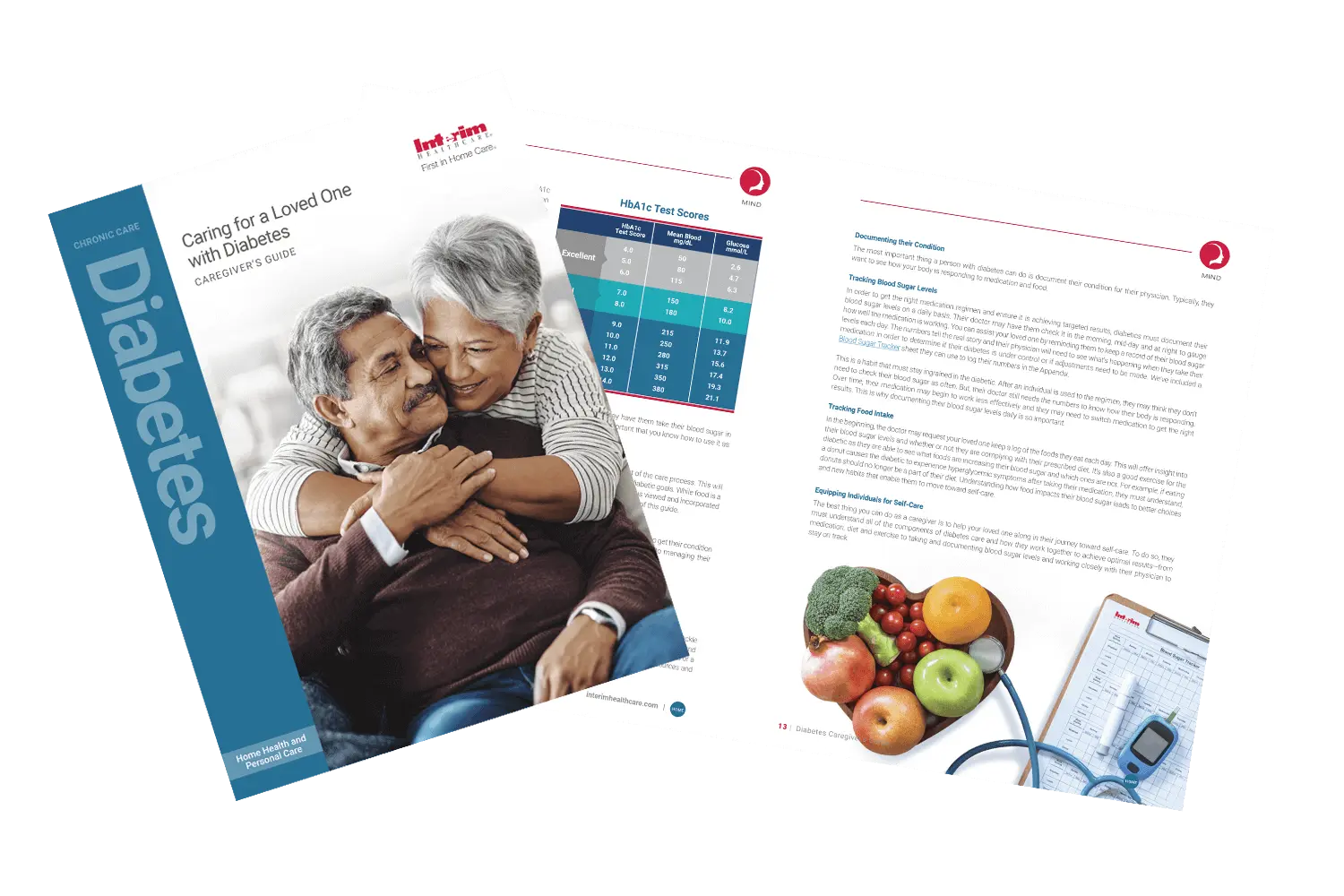
Diabetes Caregiver's Guide
Supporting a loved one with diabetes involves more than just offering emotional comfort. It can require comprehensive knowledge and practical skills to ensure they manage their condition effectively. The Diabetes Caregiver's Guide, offered by Interim HealthCare, addresses this need by providing valuable diabetes education for caregivers. This downloadable resource equips you with the essential information and caregiver tips for diabetes care to empower you on your caregiving journey.
What Does the Diabetes Caregiver's Guide Offer?
The diabetes caregiver guide serves as a one-stop resource for understanding diabetes and supporting your loved one's well-being. It delves into various aspects of the disease, providing practical advice and strategies for caregivers:
- Demystifying Diabetes: The guide explores the different types of diabetes, their causes, and how they impact the body. This knowledge is crucial for understanding your loved one's unique situation.
- Monitoring Blood Sugar: Blood sugar control is a cornerstone of diabetes management. The guide explains the importance of consistent monitoring and offers tips on using blood sugar meters and interpreting results.
- Meal Planning and Nutrition: A healthy diet plays a vital role in managing diabetes. The guide provides insights on creating balanced meals and managing portion sizes, helping you support your loved one's nutritional needs.
- Medication Management: Understanding diabetes medications and ensuring proper adherence can be challenging. The guide provides essential information on different medication types and strategies to maintain a consistent treatment regimen.
- Physical Activity and Exercise: Regular exercise is crucial for diabetes management. The guide offers advice on incorporating physical activity into your loved one's routine safely and effectively.
- Recognizing Complications: Diabetes can lead to various complications. The guide helps you recognize potential warning signs, enabling you to seek timely medical attention if needed.
- Emotional Support: Living with a chronic condition like diabetes can take an emotional toll. The guide offers tips on providing emotional support and encouraging positive coping mechanisms for your loved one.
- Becoming a Partner in Care: Effective diabetes management requires working collaboratively with your loved one and their healthcare team. The guide empowers you to become a valuable partner in care, advocating for your loved one's best interests.
Beyond Information: The Value of Diabetes Caregiver Training
The diabetes caregiver guide goes beyond simply providing information. It offers diabetes caregiver training by equipping you with practical skills and strategies to support your loved one effectively.
Benefits of Utilizing the Diabetes Caregiver's Guide:
- Enhanced Knowledge: Gaining a deeper understanding of diabetes empowers you to make informed decisions for your loved one's care.
- Improved Daily Management: Practical tips on blood sugar monitoring, meal planning, and medication management contribute to improved overall diabetes control.
- Increased Confidence: Confidence in your abilities as a caregiver reduces stress and anxiety for both you and your loved one.
- Reduced Risk of Complications: Knowledge of potential complications allows for early detection and intervention.
- Enhanced Emotional Support: Effective communication and coping mechanisms foster a stronger support system for your loved one.
- Streamlined Communication with Healthcare Professionals: With a solid understanding of diabetes, you can better communicate with your loved one's healthcare team.
Download Your Diabetes Caregiver's Guide Today
Empowering yourself with knowledge and skills through the Diabetes Caregiver's Guide allows you to provide your loved one with the support they need to manage their diabetes effectively. Download your complimentary copy today from Interim HealthCare. Remember, by working together, you can create a positive and supportive environment that helps your loved one thrive despite their diagnosis.